Repression in Northern Ireland: Martin Corey’s Detention Was on Secret Evidence
By Eugene Egan
After almost four years of detention without trial, Irish Republican Martin Corey, 62, was finally released on January 15, 2014. Corey is a member of Republican Sinn Fein, who broke away from Sinn Fein under the leadership of Gerry Adams in 1986. Republic Sinn Fein are linked to the republican dissident group the Continuity Irish Republican Army, who have continued to carry out attacks against British forces based in Northern Ireland.
Corey, from Lurgan in County Armagh, was previously jailed for life in 1973 for the killing of two police officers but released in June 1992 after serving 19 years. On April 16, 2010, however, he was arrested, on the orders of Shaun Woodward, the then British Secretary of State for Northern Ireland, and detained in Maghaberry Prison without charge or trial.
The Good Friday Agreement
Republican Sinn Fein oppose the Northern Ireland Good Friday Agreement because they see it as a sell-out that copper-fastens British rule in Northern Ireland. This agreement was reached by republican and unionist politicians on Friday April 10, 1998 following peace talks between Irish republicans and the British Government that led to the Provisional Irish Republican Army (Provisional IRA) and loyalist paramilitaries decommissioning their weapons. The agreement allowed for a Power-Sharing Assembly in Stormont, Northern Ireland and “parity of esteem” for Irish nationalists and British unionists. It followed years of a protracted armed campaign by the IRA to force a British withdrawal from Northern Ireland.
Ireland had been under British rule since the 12th century when it was invaded on the orders of the English king Henry 11 in 1169. Over the centuries, there were many uprisings and rebellions against British rule. The British responded with brute force, including a campaign of genocide in the 17th century by Oliver Cromwell’s army which wiped out a third of the Irish population. In addition, the British planted settlers from Scotland and England mostly in the North-East of Ireland: the forerunners of the unionist/loyalist communities in Northern Ireland today. The settlers were Protestants who enjoyed privileges over the native Catholic Irish, which served the interests of Britain’s policy of “divide and rule.”
In 1916, an uprising by Irish nationalists in Dublin known as the Easter Rising was defeated. Although it was unsuccessful and their leaders executed, the brutal manner of the executions led to the reawakening of the Irish national consciousness and the formation of the IRA. In the 1918 election, over 73 percent of the Irish people voted for Sinn Fein’s mandate calling for Irish independence, but this was ignored by the British Government. Nevertheless the IRA’s campaign of guerrilla warfare was very effective and led to peace talks between the IRA and the British Government. The talks culminated in the partition of Ireland and the establishment of the Irish Free State, but Northern Ireland would remain under British rule under the Anglo-Irish Treaty of 1921.
Many Irish republicans were unhappy about this, who insisted on a complete British withdrawal and the establishment of an independent Irish Republic. A civil war ensued between pro-treaty and anti-treaty republicans. The newly-formed Irish government pro-treaty forces were as ruthless, if not more, than the British and were eventually successful in suppressing those republicans who wanted to continue the struggle against partition and for a united Ireland completely free from British rule.
With partition and the suppression of the IRA, Ireland was divided into two reactionary states. The newly-formed state of Northern Ireland was created in such a way as to ensure a Protestant/unionist majority over the Catholic/nationalist community. Laws were introduced that discriminated against Catholics who were denied civil rights and found it hard to get employment and housing.
In 1968, a campaign for civil rights was formed but this was met with baton-charging and other such violence by the protestant-dominated sectarian police force, known as the B-specials, who encouraged loyalist pogroms against the Catholic community. The situation was running out of control with riots and killings and the British army had to be brought in ostensibly to keep the peace, but in reality it was to maintain British rule and prop up the sectarian state. At the same time the Provisional IRA was born to help defend the nationalist community from state violence and force a British withdrawal from Northern Ireland. Water cannons, rubber bullets, curfews and other such like was the order of the day. Internment was introduced in 1971 to deal with the IRA, but this only increased their support and alienated nationalists from the British state.
Following almost 30 years of a long protracted military conflict between the Provisional IRA and the British state, a compromise solution was established. This compromise was the Good Friday Agreement. Sinn Fein, the IRA’s political wing, under the leadership of Gerry Adams and Martin McGuinness brokered a peace deal that led to the Provisional IRA decommissioning its weapons in return for power sharing in the Northern Ireland Assembly of Stormont.
The Case of Martin Corey
The British authorities detained Martin Corey for nearly four years on the basis of “closed information”: in other words, “secret evidence.” Neither Corey nor his legal representatives were shown the evidence against him or told why the authorities believed he was a threat.
In a Judicial Review in July 2012, Corey challenged his detention, leading Judge Colman Treacy to order his release on bail on the grounds that “closed material” was insufficient evidence to detain him. On the same day, however, the judge’s order was blocked by the Secretary of State, citing grounds of national security, as the evidence against him was secret and could not be disclosed even to the judge.
The fact that a man can be taken away from his home and detained on the basis of “secret evidence,” without charge or trial, is a form of selective internment and a blatant disregard for human rights and the due process of law. Supporters of Martin Corey say his detention is part of a vindictive campaign of repression against political activists who speak out against the Good Friday Agreement.
Part of the conditions of his release is that he cannot talk to the media. The Martin Corey Release Campaign welcomed his release but issued a statement saying: “Martin was interned on secret evidence gathered by secret police and held without a charge or trial since April 2010…. The British Government, secretary of state and all those involved in the internment of Martin Corey showed contempt for human rights and were involved in a despotic policy of ruling by decree.”
The British-controlled state has a long history of using repressive laws and tactics against Irish republicans and nationalists who oppose British rule. Such tactics have included internment, curfews, non-jury courts, paid informers, undercover assassinations, and agent provocateurs. On January 30, 1972, British soldiers shot dead 13 civil-rights marchers in Derry in what became known as Bloody Sunday. In 1978, the European Court of Human Rights found the British government guilty of inhuman and degrading treatment when 14 former internees took legal action after being hooded, beaten, deprived of sleep and food, forced to stand for long periods and subjected to continuous loud noise. More recently, there has been evidence of many British soldiers and policemen colluding with pro-British loyalist death squads.
More and more Irish Republicans, socialists and political activists are pointing out that, like the Anglo-Irish Treaty of 1921, the Good Friday Agreement is a ruse by the British Government to maintain British rule in Ireland. They argue that it fails to address the root cause of the conflict: the British presence and the Unionist veto on a united Ireland. Republican Sinn Fein broke away from Sinn Fein over its decision to take seats in the British parliament, arguing that having two separate referendums on a united Ireland (as happened with the agreement’s ratification) was undemocratic, as Northern Ireland is an artificially created state established to ensure a British unionist majority and that the whole of the people, north and south, should be given the right to vote in one all-Ireland referendum. An increase in bombing, shootings and riots in recent years illustrates the growing popular tensions and disillusionment with the peace accord.
Editor’s notes: Eugene Egan is a political activist and writer based in the United Kingdom who campaigns on Palestine and Ireland. His work has been published in various British and Irish publications including Palestine News and Ceasefire Magazine. Photographs one, five, six and thirteen by Iker Merodio. Photographs four, nine, eleven, twelve and fifteen by PPC Antifa. Photograph ten by The Urban Guerrilla . Photograph three, seven, eight and fourteen from the Burns Library.
Related Articles

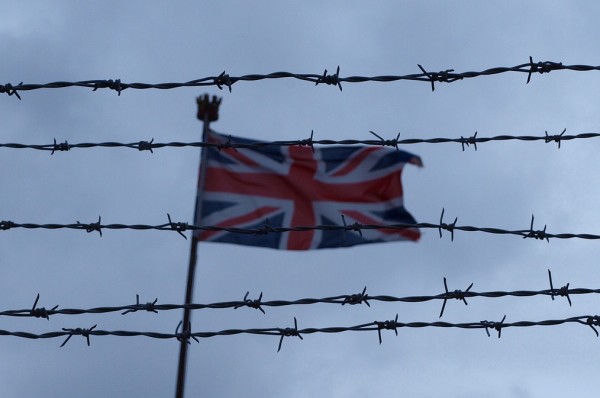
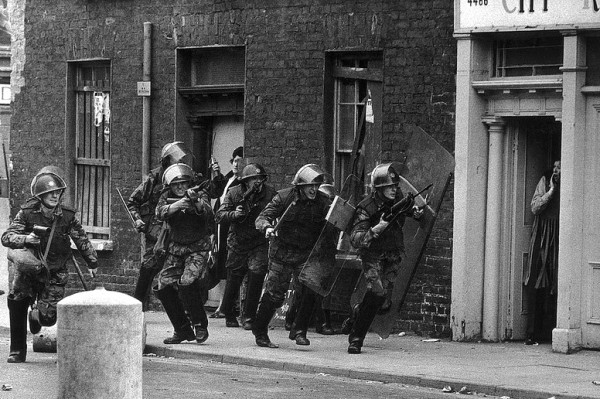
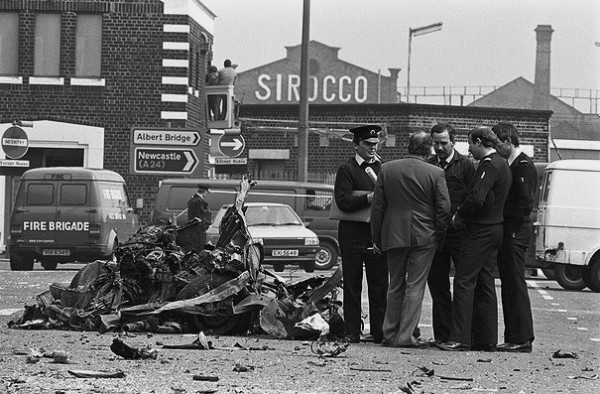
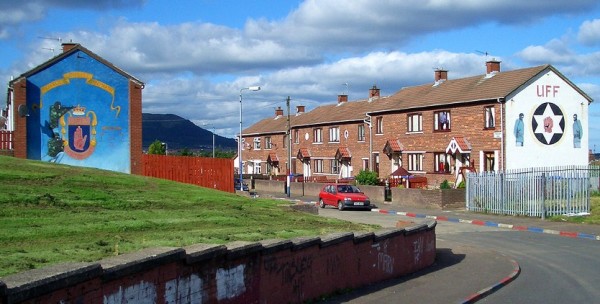
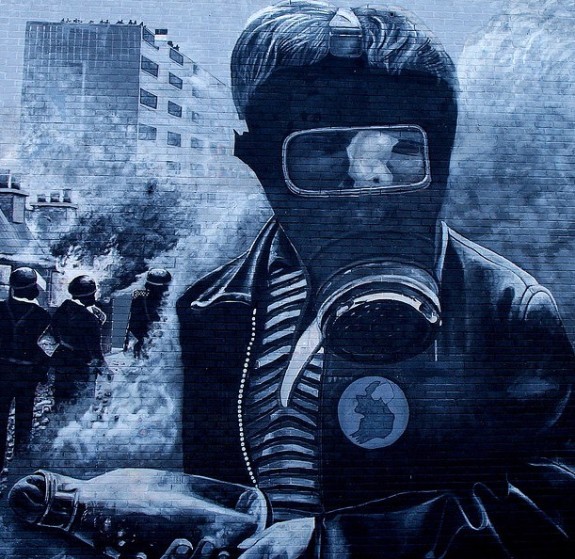
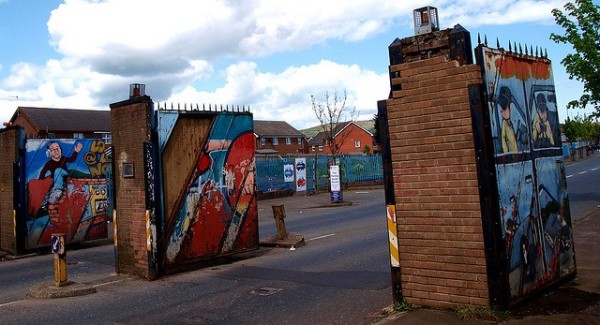
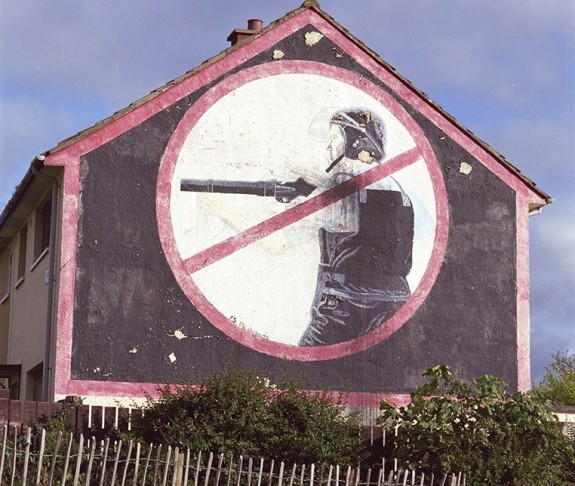
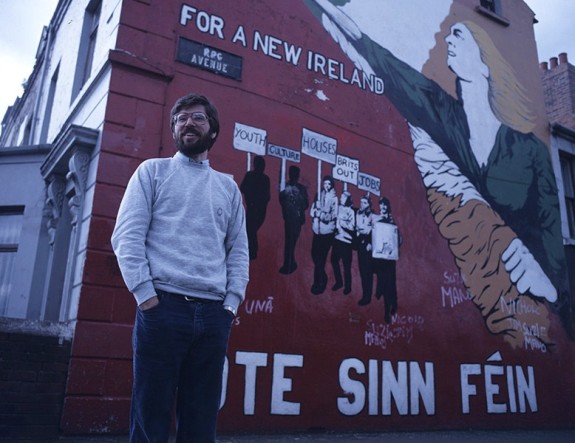
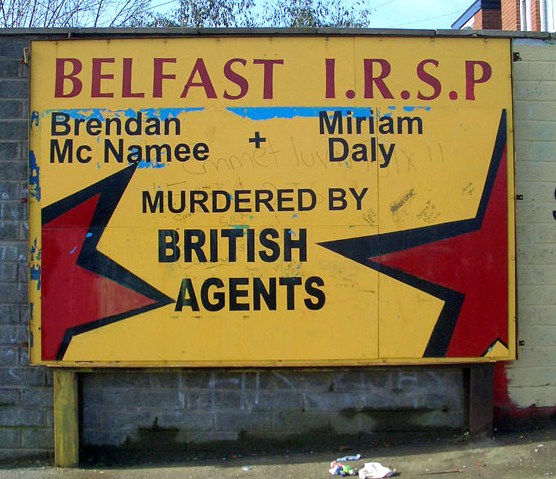

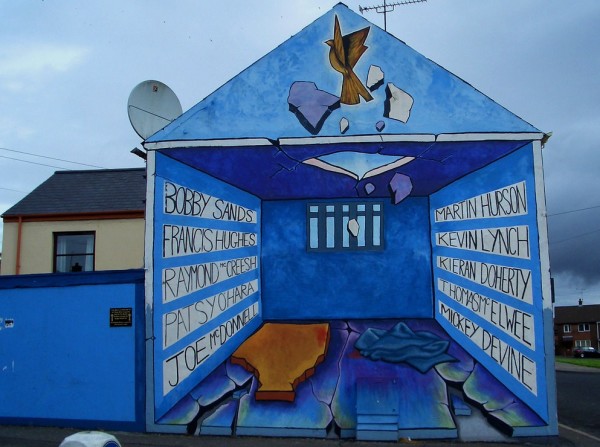
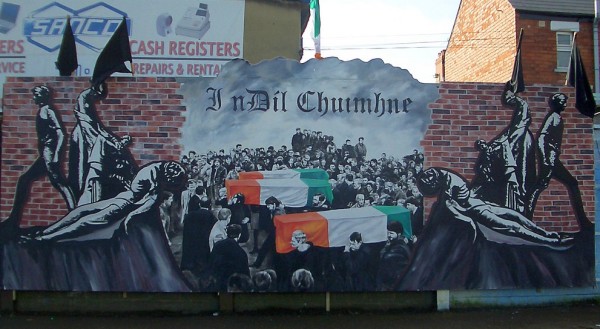
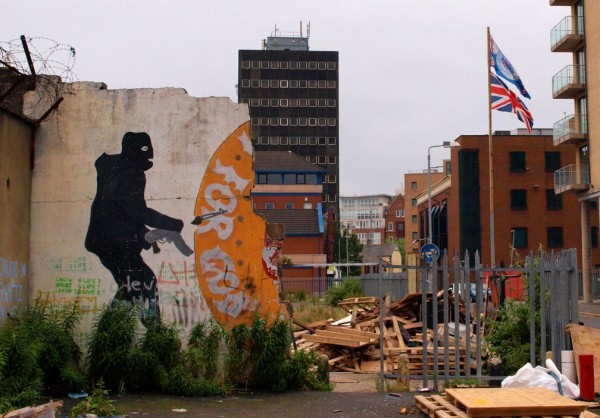
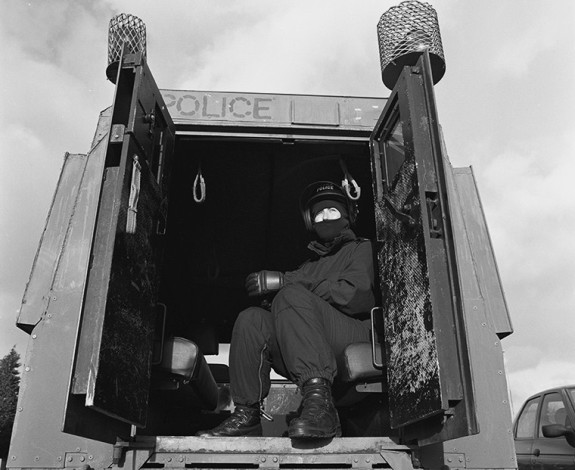
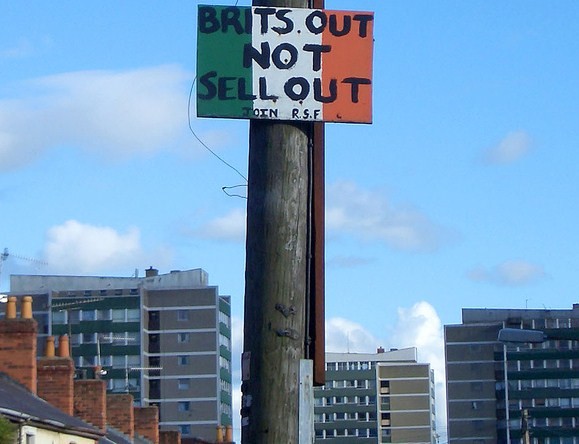











2 Responses to Repression in Northern Ireland: Martin Corey’s Detention Was on Secret Evidence
You must be logged in to post a comment Login